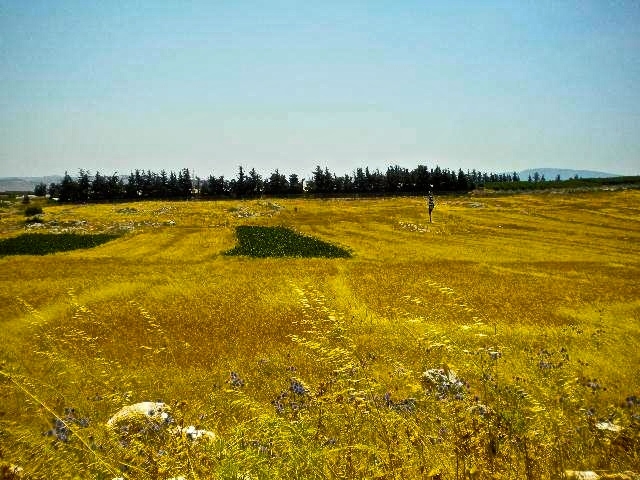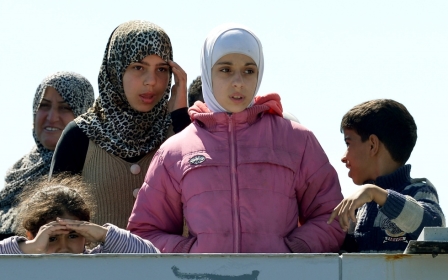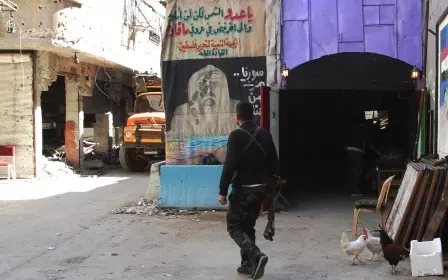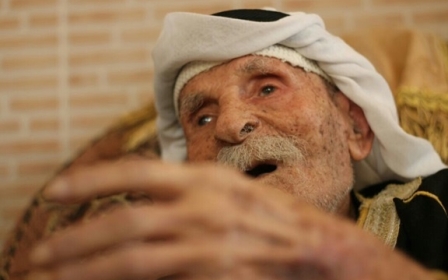Lebanon’s landscape of Palestinian oppression

One evening shortly after the outbreak of the Lebanese civil war in 1975, my good friend’s mother - a Palestinian from Gaza then studying at the American University of Beirut (AUB) - was walking with a companion on Beirut’s seaside promenade.
The pair was spotted by a group of fellow students, who, given the tenseness of the situation, encouraged them to jump the fence separating the promenade from a parcel of AUB-owned land abutting the sea. There, in what was perceived to be relative safety, they struck up a conversation.
It was soon revealed that the students were adherents to the right-wing Phalange party, founded by Pierre Gemayel following an inspirational trip to the 1936 Berlin Olympics, during which he was wowed by Nazi discipline. Unaware of my friend’s mother’s provenance, the group began expressing its thoughts on Palestinians.
The consensus was that the Palestinians had brought nothing but trouble to Lebanon, and that the Israelis should have simply killed them all.
Seven years later, Phalangist militiamen would do their part to assist the Israelis in such genocidal fantasies. Over a period of three days in September of 1982, up to several thousand refugees were massacred in the Beirut refugee camps of Sabra and Shatila.
Discrimination, Inc.
Four decades after the civil war’s launch, the Palestinian identity is still under attack in Lebanon. Most of the country’s Palestinian residents face ubiquitous and institutionalised discrimination that is much more severe than that experienced by my friend’s mom. Hailing from a family of privilege, she had moved to the country for university of her own free will rather than as a victim of the Nakba.
Half a million registered Palestinian refugees currently live in Lebanon, and the population continues to receive reinforcements from now often twice-displaced Palestinian refugees in neighbouring war-torn Syria.
The website of the United Nations Relief and Works Agency for Palestine Refugees in the Near East (UNRWA) - which operates in Jordan, Lebanon, Syria, Gaza, and the West Bank - states that, “among the five UNRWA fields, Lebanon has the highest percentage of Palestine refugees living in abject poverty”.
Many reside in the country’s 12 recognised camps, squalid territories characterised by acute overcrowding, inadequate housing and infrastructure, and amenities like open sewage.
Denied fundamental human rights, Palestinian refugees are banned from more than 70 professions in Lebanon and cannot attend public schools or own property.
In a 2014 piece for The Electronic Intifada, Lebanese journalist Moe Ali Nayel drew attention to some of the facts of Palestinian life in Lebanon, using a series of infographics produced by the Visualising Palestine initiative in collaboration with the International Labour Organisation and the Committee for Employment of Palestinian Refugees in Lebanon.
One of the infographics illustrates how Palestinians are denied healthcare coverage even while contributing to Lebanon’s National Social Security Fund. Another highlights the story of 20-year-old Iqbal Assad, who recently became the world’s youngest doctor. A Palestinian refugee born and raised in Lebanon, Assad is unable to practice medicine in the country due to the ban on Palestinians in medical professions.
Two wrongs
What, then, is the reason for such fantastically punitive measures, which often seem to verge on the criminalisation of Palestinian existence?
The ostensible justification is that the Lebanese state cares so profoundly about the refugees’ legitimate right of return to Palestine that it would never do anything so counterproductive as to allow them to get comfy in their “temporary” Lebanese accommodations - where many have already spent nearly seven decades, sans citizenship and sans civil rights.
As they say, two wrongs don’t make a right - or, obviously, rights.
But there is a more insidious reason for the state’s enduring obstinacy: treating Palestinian refugees as equal human beings worthy of participation in the nation’s society and politics would be a nightmare for Lebanon’s elite leaders, who profit from the current sectarian setup.
Under the present system, political power and spoils are divvied up along religious lines, supposedly in accordance with the size of each of Lebanon’s 18 recognised religious communities. The fact that no official census has been conducted in the country since 1932 is conveniently overlooked, and sectarian warlords go merrily about their business, hyping the existential threats allegedly emanating from opposing sects to justify their own perpetual empowerment.
An official Palestinian entrance into this milieu would mean an extra 500,000 Sunnis tacked on to a national (pre-Syrian war) population of an estimated four million or so. The weight of the Palestinians could very well force a structural collapse -hence the general consensus among the elite that such a demographic shakeup must be prevented at all costs.
Cross-border catastrophe
Meanwhile, many an Israeli apologist has jumped at the chance to excoriate the Arab world for its mistreatment of Palestinians, which is somehow supposed to excuse Israel’s own superior mistreatment of the same ethnic group.
But not only are the Israelis entirely to blame for laying the foundations - via the Nakba - for the contemporary landscape of Palestinian oppression in Lebanon, they also periodically contribute to cross-border landscaping touchups.
On Nakba Day in 2011, for example, the Israeli army slaughtered 10 pro-Palestinian protesters in the Lebanese border town of Maroun al-Ras for such behaviour as throwing rocks in the direction of Israel.
You might thus say that the Palestinians of Lebanon are between a rock and a hard place.
In Arabic, the word “nakba” means catastrophe. And on both sides of the border, the catastrophic conditions facing Palestinians are a result not only of physical destruction and the usurpation of land but also a campaign to disappear the very idea of the Palestinian people. Despite the perpetrators' best efforts, however, neither the Palestinians nor the crimes committed against them can be erased.
- Belen Fernandez is the author of The Imperial Messenger: Thomas Friedman at Work, published by Verso. She is a contributing editor at Jacobin magazine.
The views expressed in this article belong to the author and do not necessarily reflect the editorial policy of Middle East Eye.
Photo: Lebanese border town of Maroun al-Ras (MEE/Belen Fernandez)
Middle East Eye propose une couverture et une analyse indépendantes et incomparables du Moyen-Orient, de l’Afrique du Nord et d’autres régions du monde. Pour en savoir plus sur la reprise de ce contenu et les frais qui s’appliquent, veuillez remplir ce formulaire [en anglais]. Pour en savoir plus sur MEE, cliquez ici [en anglais].





